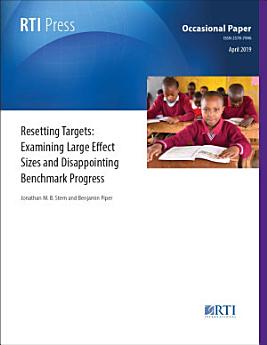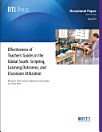Resetting targets
About this ebook
About the author
Senior Researcher, Education and Evaluation
Education
PhD, International Education Policy and Management, Vanderbilt University
MA, International Educational Development, Teachers College, Columbia University
BA, Public Policy and American Institutions, Brown University
Connect
Jonathan Stern, PhD, is an expert in research and evaluation within RTI’s International Education division. He has over 15 years of experience in educational measurement and assessment, quantitative methods, research design, and program monitoring and evaluation.
Dr. Stern has provided technical expertise and assistance to education programs in more than twenty countries throughout his career, with an explicit focus on training and capacity building for project staff, ministry counterparts, and education stakeholders.
Since joining RTI in 2014, Dr. Stern has worked extensively in the education assessment space, leading efforts in the development and validation of Group Administered Literacy and Mathematics Assessments, as well as contributing to research and innovations in standard setting and benchmarking for early grade reading. He has also regularly supported projects in strengthening their use of monitoring and evaluation data and applied research findings for evidence-based decision-making about program implementation.


